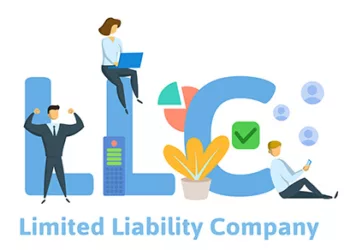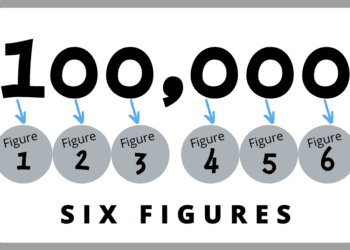I was recently watching a video podcast on Cam’ron and Mase’s show called “It is what it is” when a fascinating statement caught my attention. Cam’ron referenced Ted DiBiase, famously saying, “Everybody’s Got A Price!” This statement led me down a rabbit hole of thoughts about the thin line between a business agreement/arrangement, buying an individual, and making an offer you can’t refuse. Personally, I have always been of the mindset that you cannot buy me. However, if the money is right, I would take the deal. Maybe it’s the way the offer is presented. You cannot make a person feel like they are being bought. Very interesting!
This concept holds significant weight in the world of business, where deals and negotiations often blur ethical lines. Today, we delve into whether business agreements are genuine collaborations or simply transactional deals with a price tag attached to each party involved.
The Essence of Business Agreements
Business agreements are fundamental to the corporate world. They provide a framework within which companies can collaborate, trade, and grow. However, the underlying motives and power dynamics in these agreements can vary significantly.
What Defines a Business Agreement?
A business agreement is a mutual understanding between parties about their rights and responsibilities. It is a legally binding contract that ensures both sides meet their obligations. These agreements can range from simple supplier contracts to complex merger and acquisition deals.
Key Components of Business Agreements
| Component | Description |
|---|---|
| Offer | One party proposes a deal or service. |
| Acceptance | The other party agrees to the offer. |
| Consideration | Something of value is exchanged between the parties. |
| Mutual Obligation | Both parties have duties to perform. |
| Competency and Capacity | Parties must have the legal ability to enter into the agreement. |
| Legality | The agreement must comply with the law. |
These components create a structure that ideally benefits all parties involved. But when does a fair deal turn into a situation where someone feels bought?
The Thin Line: Business vs. Buying Individuals
The notion that “Everybody’s Got A Price” suggests that money can sway even the most principled individuals. This idea is particularly relevant in high-stakes business environments.
Business Agreements: Collaboration or Coercion?
While business agreements are meant to be collaborative, the power dynamics can sometimes resemble coercion. When one party has significantly more leverage, the deal can feel more like a buyout than a partnership.
Case Study: Tech Company Acquisitions
Consider the tech industry, where startups often get acquired by giants like Google or Apple. These deals can seem like mutually beneficial agreements, but are they always?
| Startup | Acquiring Company | Deal Value | Outcome |
|---|---|---|---|
| $1 billion | Massive growth, but loss of original culture. | ||
| $19 billion | Expansion of user base, concerns over privacy. | ||
| Beats by Dre | Apple | $3 billion | Enhanced product line, shift in brand focus. |
In these scenarios, while the monetary compensation is substantial, the smaller companies often lose their autonomy and original vision. This raises the question: Is this a fair business agreement, or are these startups being bought?
The Psychology Behind the Offer
The presentation of an offer can significantly impact how it is perceived. If an offer respects the individual’s values and contributions, it is more likely to be accepted as a fair deal rather than a buyout.
Psychological Factors in Business Offers
- Respect and Recognition: Acknowledging the individual’s contributions and expertise.
- Alignment of Values: Ensuring the offer aligns with the individual’s personal and professional goals.
- Transparency: Clearly communicating the terms and implications of the offer.
- Incentives and Benefits: Providing incentives that resonate with the individual’s needs and aspirations.
By focusing on these factors, businesses can create offers that feel collaborative rather than coercive.
Ethical Considerations in Business Deals
Ethics play a crucial role in differentiating between a fair business agreement and an exploitative one. Ethical business practices ensure that all parties feel respected and fairly treated.
The Role of Ethics in Business
Ethical business practices involve honesty, fairness, and integrity. These principles help maintain trust and respect between parties, which is essential for long-term success.
Ethical Dilemmas in Business Agreements
| Dilemma | Description | Example |
|---|---|---|
| Exploitation of Power Imbalance | One party uses its superior position to pressure the other. | Large company imposing unfair terms on a smaller supplier. |
| Lack of Transparency | Withholding critical information that could influence the decision. | Not disclosing potential financial risks. |
| Conflict of Interest | Personal interests interfere with professional duties. | A board member benefiting from a deal at the expense of the company. |
| Unfair Competition | Engaging in practices that harm competitors unethically. | Predatory pricing to drive competitors out of the market. |
Addressing these dilemmas is vital to ensure that business agreements are ethical and mutually beneficial.
The Impact of Unethical Practices
Unethical business practices can have severe consequences, including legal repercussions, loss of reputation, and financial penalties. More importantly, they erode trust and can damage long-term business relationships.
Balancing Business and Ethics: Real-World Examples
Several real-world examples highlight the balance between business success and ethical practices. Companies that prioritize ethics often enjoy sustainable success and a positive reputation.
Case Study: Patagonia
Patagonia, an outdoor apparel company, is renowned for its ethical business practices. The company prioritizes environmental sustainability and fair labor practices, which resonate with its customers and employees.
Patagonia’s Ethical Practices
- Environmental Responsibility: Committing to sustainable sourcing and reducing environmental impact.
- Fair Labor Practices: Ensuring fair wages and safe working conditions for employees and suppliers.
- Corporate Transparency: Being open about business practices and challenges.
These practices have earned Patagonia a loyal customer base and a strong brand reputation.
Case Study: Enron
On the opposite end of the spectrum, Enron serves as a cautionary tale of unethical business practices. The energy company’s fraudulent accounting practices led to its collapse, resulting in significant financial and reputational damage.
Enron’s Unethical Practices
- Fraudulent Accounting: Manipulating financial statements to present a false image of profitability.
- Lack of Transparency: Concealing financial problems from investors and regulators.
- Exploitation of Employees: Encouraging risky behavior that ultimately harmed employees and stakeholders.
The Enron scandal underscores the importance of ethics in maintaining a sustainable and successful business.
Strategies for Ethical Business Agreements
Creating ethical business agreements requires a commitment to integrity, transparency, and mutual respect. Here are strategies to ensure your business deals are ethical and fair.
Clear Communication and Transparency
Transparency is critical in building trust. Ensure all parties have a clear understanding of the terms and implications of the agreement.
Key Elements of Transparent Communication
- Openly sharing relevant information.
- Explaining the rationale behind decisions.
- Providing regular updates and feedback.
Fair Negotiation Practices
Negotiations should be conducted with fairness and respect. Avoid using power imbalances to pressure the other party.
Fair Negotiation Techniques
- Listen actively to understand the other party’s perspective.
- Seek win-win solutions that benefit all parties.
- Avoid aggressive tactics that create resentment.
Ethical Decision-Making Framework
Developing an ethical decision-making framework can help guide your business practices. This framework should prioritize integrity and respect for all stakeholders.
Components of an Ethical Decision-Making Framework
- Identify Ethical Issues: Recognize potential ethical dilemmas in business agreements.
- Evaluate Options: Consider the ethical implications of different choices.
- Make Informed Decisions: Choose actions that align with your ethical values.
- Implement and Monitor: Ensure ethical practices are followed and adjust as needed.
The Price of Integrity in Business
In conclusion, while the notion that “Everybody’s Got A Price” may hold some truth, it’s essential to recognize the value of ethical business practices. Business agreements should be collaborative and mutually beneficial, respecting the autonomy and values of all parties involved. By prioritizing ethics and transparency, businesses can build trust, maintain positive relationships, and achieve sustainable success.
The line between a business agreement and buying an individual can be thin, but with a commitment to ethical practices, it is possible to create fair and respectful deals. Remember, the true cost of business is not just in monetary terms but in the integrity and trust that form the foundation of successful and lasting partnerships.
External Resources
For further reading on ethical business practices, consider exploring the following resources:
- Harvard Business Review on Ethical Business
- The Importance of Business Ethics by Investopedia
- Patagonia’s Environmental Responsibility
By integrating these strategies and resources, businesses can navigate the complex landscape of business agreements with integrity and respect for all parties involved.
Disclaimer: The views and opinions expressed in this blog post are those of the author and do not necessarily reflect the official policy or position of any company or organization. This content is for informational purposes only and should not be considered legal or financial advice. Always consult with a professional before making any business decisions.













































Your blog is a shining example of excellence in content creation. I’m continually impressed by the depth of your knowledge and the clarity of your writing. Thank you for all that you do.